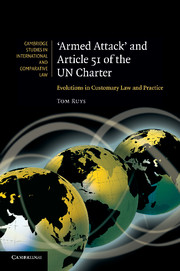International criminal justice relies on messages, speech acts, and performative practices in order to convey social meaning. Major criminal proceedings, such as Nuremberg, Tokyo, and other post-World War II trials have been branded as 'spectacles of didactic legality'. However, the expressive and communicative functions of law are often side-lined in institutional discourse and legal practice. This innovative work brings these functions centre-stage, developing the idea of justice as message and outlining the expressivist foundations of international criminal justice in a systematic way.
Professor Carsten Stahn examines the origins of the expressivist theory in the sociology of law and the justification of punishment, its articulation in practice, and its broader role as method of international law. He shows that expression and communication is not only an inherent part of the punitive functions of international criminal justice, but is represented in a whole spectrum of practices: norm expression and diffusion, institutional actions, performative aspects of criminal procedures, and repair of harm. He argues that expressivism is not a classical justification of justice or punishment on its own, but rather a means to understand its aspirations and limitations, to explain how justice is produced and to ground punishment rationales. This book is an invitation to think beyond the confines of the legal discipline, and to engage with the multidisciplinary foundations and possibilities of the international criminal justice project.
چکیده فارسی
عدالت کیفری بینالمللی به پیامها، اعمال گفتاری و شیوههای اجرایی برای انتقال معنای اجتماعی متکی است. رسیدگیهای کیفری بزرگ، مانند نورنبرگ، توکیو، و دیگر محاکمات پس از جنگ جهانی دوم به عنوان «نمایشهای قانونی تعلیمی» شناخته شدهاند. با این حال، کارکردهای بیانی و ارتباطی قانون اغلب در گفتمان نهادی و رویه حقوقی کنار گذاشته می شود. این کار ابتکاری این کارکردها را در مرکز صحنه قرار می دهد و ایده عدالت را به عنوان پیام توسعه می دهد و مبانی بیان گرایانه عدالت کیفری بین المللی را به روشی سیستماتیک ترسیم می کند.
پروفسور کارستن استن به بررسی خاستگاه نظریه اکسپرسیویستی در جامعه شناسی حقوق و توجیه مجازات، بیان آن در عمل و نقش گسترده تر آن به عنوان روش حقوق بین الملل می پردازد. او نشان میدهد که بیان و ارتباطات نه تنها بخشی ذاتی از عملکردهای کیفری عدالت کیفری بینالمللی است، بلکه در طیف کاملی از شیوهها نمایان میشود: بیان و انتشار هنجارها، اقدامات نهادی، جنبههای اجرایی رویههای کیفری، و ترمیم آسیب. او استدلال میکند که بیانگرایی به تنهایی توجیه کلاسیک عدالت یا مجازات نیست، بلکه وسیلهای برای درک آرمانها و محدودیتهای آن، توضیح چگونگی تولید عدالت و پایهگذاری منطق مجازات است. این کتاب دعوتی است برای تفکر فراتر از محدودیتهای رشته حقوقی و تعامل با مبانی چند رشتهای و امکانات پروژه عدالت کیفری بینالمللی.
ادامه ...
بستن ...
Ebook details:
عنوان: Justice as Message: Expressivist Foundations of International Criminal Justice
نویسنده: Stahn, Carsten
ناشر: Oxford University Press (July 28, 2020)
زبان: English
شابک: 0198864183, 978-0198864189
9780192609649 0192609645 9780192609656 0192609653 0198864183 9780198864189
حجم: 49 Mb
فرمت: Original PDF
ادامه ...
بستن ...
![Justice as Message: Expressivist Foundations of International Criminal Justice [2020] - Original PDF Justice as Message: Expressivist Foundations of International Criminal Justice [2020] - Original PDF](https://dl.libsan.ir/images/1/12/Justice as Message_5f198dcc35813.jpg)









